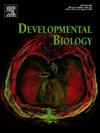Teaching developmental biology to drive social change: Pedagogy that challenges biologically deterministic views on phenotypic variation
IF 2.5
3区 生物学
Q2 DEVELOPMENTAL BIOLOGY
引用次数: 0
Abstract
Discrimination against groups of people based on socially-normed phenotypic variations is commonplace in many societies. The stigmatized phenotypic variations are dependent on specific societal norms but might include features that align with social constructs of race, phenotypic variations that may result in different ability levels, or those that align with social constructs of sex and/or gender identity. Science has contributed to this discrimination through biological essentialism, either by assigning specific undesirable biological characteristics to socially-normed phenotypic groupings, or more recently by assigning a genetic basis for these phenotypic differences. Biological essentialism can promote deterministic views lead to alienation and the persistence of social hierarchies. To overcome this, scientists have a responsibility to create positive changes to decenter practices that contribute to such discrimination. The study of developmental biology straddles the intersection of many biological concepts that have social and political ramifications. This paper outlines a pedagogical approach to create connections between concepts central to developmental biology and broader social issues to which they relate using a biocultural perspective. Specifically, the focus will be on understanding how phenotypes are generated through a combination of biological, environmental and social factors; exploring how deterministic views of biological essentialism contribute to social hierarchies and discrimination (such as racism, sexism, genderism and ableism); and understanding how this discrimination can become embodied through negative chronic and transgenerational biological consequences for stigmatized groups.

教授发育生物学以推动社会变革:挑战表型变异生物学决定论观点的教学法。
在许多社会中,基于社会规范的表型变异对人群的歧视是司空见惯的。被污名化的表型变异依赖于特定的社会规范,但可能包括与种族的社会结构相一致的特征,可能导致不同能力水平的表型变异,或与性别和/或性别认同的社会结构相一致的特征。科学通过生物本质主义促成了这种歧视,通过将特定的不受欢迎的生物特征分配给社会规范的表型组,或者最近通过分配这些表型差异的遗传基础。生物本质主义可以促进决定论的观点,导致异化和社会等级的持久性。为了克服这一点,科学家有责任创造积极的变化,以消除导致这种歧视的做法。发育生物学的研究跨越了许多具有社会和政治影响的生物学概念的交叉点。本文概述了一种教学方法,在发育生物学的核心概念和更广泛的社会问题之间建立联系,这些问题与生物文化的观点有关。具体来说,重点将放在理解表型是如何通过生物、环境和社会因素的组合产生的;探索生物本质论的决定论观点如何导致社会等级和歧视(如种族主义、性别歧视、性别歧视和残疾歧视);了解这种歧视是如何通过对被污名化的群体产生消极的长期和跨代的生物学后果而具体化的。
本文章由计算机程序翻译,如有差异,请以英文原文为准。
求助全文
约1分钟内获得全文
求助全文
来源期刊

Developmental biology
生物-发育生物学
CiteScore
5.30
自引率
3.70%
发文量
182
审稿时长
1.5 months
期刊介绍:
Developmental Biology (DB) publishes original research on mechanisms of development, differentiation, and growth in animals and plants at the molecular, cellular, genetic and evolutionary levels. Areas of particular emphasis include transcriptional control mechanisms, embryonic patterning, cell-cell interactions, growth factors and signal transduction, and regulatory hierarchies in developing plants and animals.
 求助内容:
求助内容: 应助结果提醒方式:
应助结果提醒方式:


